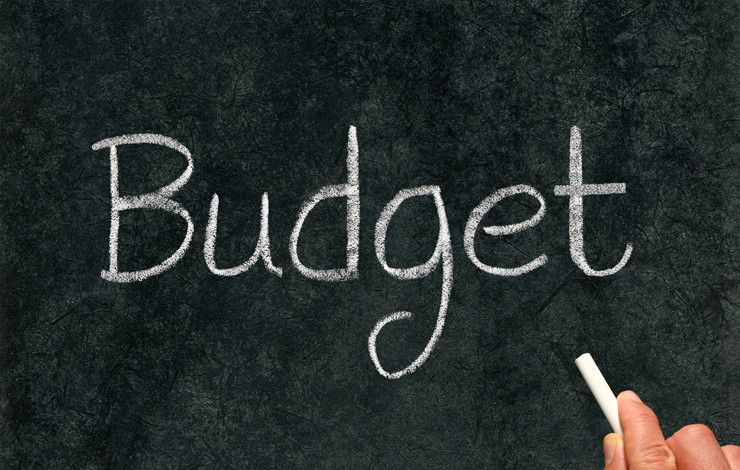In a world where managing finances can be a daunting task, creating a budget can be your key to financial freedom and security. Whether you’re just starting on your budgeting journey or looking for ways to enhance your budgeting skills, we’ve got you covered. We’ll explore five easy budgeting tips that anyone can follow to take control of their money and work toward their financial goals.
1. List Your Fixed and Variable Expenses
When it comes to budgeting, don’t just guess your monthly expenses. List them meticulously. This includes everything from rent and utilities to your phone bill and groceries. Yes, even that life insurance policy payment. Having a comprehensive list allows you to understand the cost of your necessities and provides a clear picture of what you can save or spend on discretionary items.
2. Budgeting Together with Your Partner
If you share your life with a significant other, combining finances is a wise choice. Discuss your priorities, goals, and how you’ll allocate your money. Setting a budget together can even be a fun bonding experience. Regular check-ins ensure you both stay on the same financial page.
3. Don’t Fear Changes in Your Budget
Budgets aren’t set in stone. Be open to adjustments as you learn what works best for you. If you notice you’re spending more on groceries and less on dining out, modify your estimates accordingly. Life changes, too, so be ready to update your budget if you get a raise or experience a shift in your financial situation.
4. Working Toward Your Financial Goals
Goals are powerful motivators when it comes to saving money. Whether it’s a new car, a down payment on a house, or returning to school, setting financial objectives helps you stay committed. Identify short-term, medium-term, and long-term goals, and create a plan to reach them.
5. Embrace Flexibility in Your Budgeting Approach
Budgeting is a skill that takes time to develop. Your first budget may not be perfect, and that’s okay. There will be months when you exceed your budget due to unexpected expenses or spontaneous desires. Remember, nobody’s perfect. Stay flexible, be kind to yourself, and keep working towards your financial aspirations.
Introduction to Budgeting
Budgeting is not just a financial task; it’s a lifestyle choice. It’s a tool that empowers you to take charge of your money and make informed decisions. By creating a budget, you can proactively manage your finances, ensure your needs are met, and work toward achieving your dreams.
The Importance of Tracking Your Expenses
Before creating a budget, you must understand where your money is going. Tracking your expenses is an essential step in the budgeting process. Start by documenting every purchase, no matter how small. You’ll be surprised at how those seemingly insignificant expenses add up.
Allocating Funds for Savings and Investments
Budgeting isn’t just about managing your current expenses; it’s also about securing your financial future. One of the key components of your budget should be allocating funds for savings and investments. Whether it’s an emergency fund, retirement savings, or investments, setting money aside for the future is crucial.
Reducing Debt
Debt can be a significant burden on your finances. Include a debt reduction plan in your budget to eliminate outstanding debts gradually. Reducing debt not only frees up your budget but also gives you a sense of financial freedom.
The Psychological Boost of Setting Financial Goals
Having financial goals can be incredibly motivating. When you have something specific to work towards, like a dream vacation, a new home, or an early retirement, it becomes easier to stay disciplined in your spending and savings.
Prioritizing Your Short, Medium, and Long-Term Goals
Not all goals are created equal. Prioritize your objectives by categorizing them as short-term, medium-term, and long-term. This helps you allocate your resources effectively and track your progress.
Celebrating Small Wins
Don’t underestimate the power of celebrating small victories along the way. Each time you reach a milestone or achieve a goal, reward yourself. These rewards act as positive reinforcement, motivating you to stick to your budget.
Dealing with Unexpected Expenses
Life is full of surprises, and not all of them are pleasant. Your budget should account for unexpected expenses like car repairs, medical bills, or urgent home repairs. Having a plan for these unforeseen costs ensures your budget remains intact.
The Role of Emergency Funds in Your Budget
An emergency fund is your safety net in times of financial crisis. Your budget should include a consistent contribution to your emergency fund. This fund provides peace of mind, knowing you have money for unexpected emergencies.
Achieving a Balanced Budget: Tips and Tricks
Balancing your budget can be challenging, but with some useful tips and tricks, you can make it work. Learn how to cut unnecessary expenses, find alternative ways to save, and ensure your budget remains sustainable in the long run.
Conclusion
Budgeting doesn’t have to be a daunting task. By following these five easy budgeting tips and embracing the principles of flexibility, you can take control of your financial life. Remember, the key is to have a plan, track your expenses, and work towards your financial goals. As you navigate your budgeting journey, stay patient and forgiving of yourself.
Frequently Asked Questions
Q1: How do I start creating a budget?
A1: Begin by listing all your fixed and variable expenses, tracking your spending, and setting financial goals.
Q2: Should I budget with my partner?
A2: If you share finances, it’s a good idea to budget together to ensure you’re on the same page.
Q3: What if my budget doesn’t work for me?
A3: Budgets are flexible; don’t be afraid to make changes and adjustments as needed.
Q4: Why are financial goals important in a budget?
A4: Financial goals provide motivation and purpose for your budgeting efforts.
Q5: How can I deal with unexpected expenses in my budget?
A5: Include a category for unexpected expenses in your budget and maintain an emergency fund to handle unforeseen costs.
